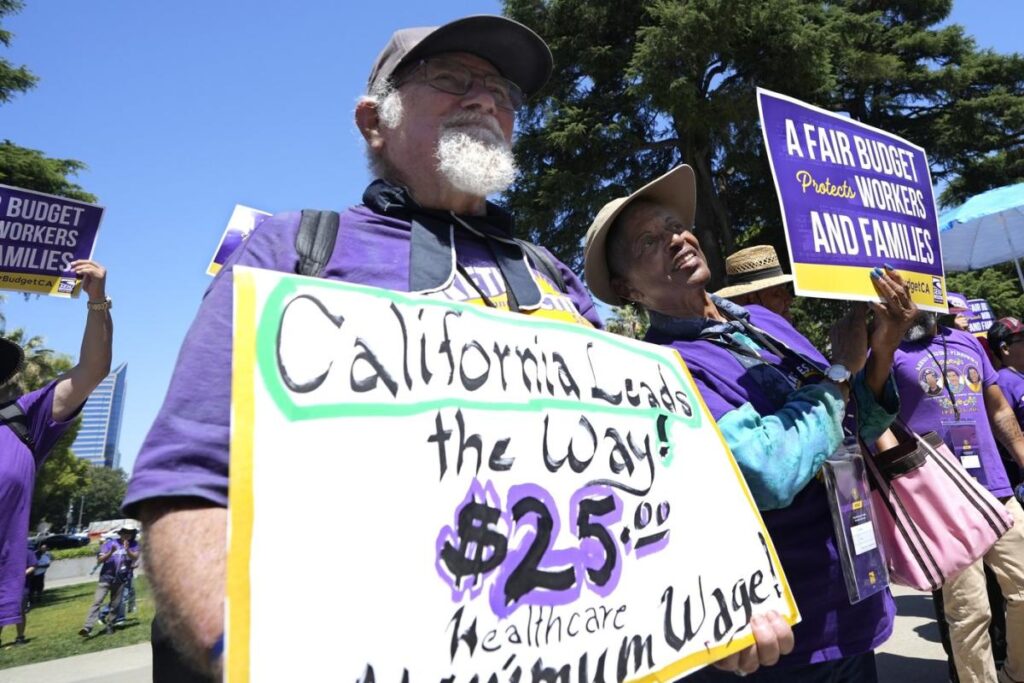SACRAMENTO, Calif. (AP) — California Democrats have agreed to postpone a minimum wage increase for about 426,000 health care workers in an effort to balance the state's budget.
The increases were supposed to begin July 1. The agreement, announced Saturday and subject to approval by the state Legislature, would delay the increases until Oct. 15 if state revenues from July through September are at least 3% higher than state officials estimate.
If that doesn't happen, the increases won't begin until January at the earliest.
The minimum wage for most Californians is $16 an hour. Gov. Gavin Newsom signed two bills last year that raised the minimum wage for two groups: fast-food workers and health care workers.
The new minimum wage for fast-food restaurants is $20 an hour, which took effect on April 1. The new minimum wage for health care workers is $25 an hour, which will be phased in over the next decade, with the first increases scheduled to begin on July 1.
But unlike the fast-food minimum wage, raising health care worker wages will affect the state budget because California both employs health care workers and pays for their health care benefits through its Medicaid program.
The Newsom administration had previously said the minimum wage increase would cost the state about $2 billion, but delaying the increase until January would cost the state's general fund about $600 million — a figure that would rise each year to reflect the scheduled increases until the minimum wage for most health care workers reaches $25 an hour.
“Of course, workers are disappointed that all low-wage health care workers will not receive a pay raise this summer as originally envisioned in the law,” said Dave Regan, president of the Service Employees International Union-United States Health Care Workers Western Chapter. “But we also recognize and appreciate that legislative leaders and the governor listened to our voices as we came together this year to say that California's patient care and health care worker crisis needed to be addressed, despite our historic budget deficit.”
The story continues
The agreement is part of a plan to close an estimated $46.8 billion deficit in the state's budget. Newsom and the Democrats who control the state Legislature have been negotiating ways to close the deficit.
The agreement announced Saturday includes $16 billion in budget cuts, including $110 million in cuts to scholarships for college-going students from middle-income families and $1.1 billion in cuts to various affordable housing programs.
The agreement would pull $5.1 billion from state savings accounts, defer $3.1 billion in other spending and shift $6 billion in expenses to other funds.
However, Governor Newsom and lawmakers agreed to abandon some previously proposed budget cuts, including an end to payments to caregivers of low-income, disabled immigrants on Medicaid.
“This agreement puts the state on a path to long-term fiscal stability, addressing our current budget deficit and strengthening our budget resiliency in the future,” Newsom said.
Senate President pro tempore Mike McGuire said this has been a “challenging budget year,” but that elected officials were able to “narrow our shortfall, protect our progress and maintain responsible reserves.”
Democratic State Assembly Speaker Robert Rivas said the Legislature “fought hard to protect the public services that matter most to Californians.”
Adam Beam, The Associated Press



